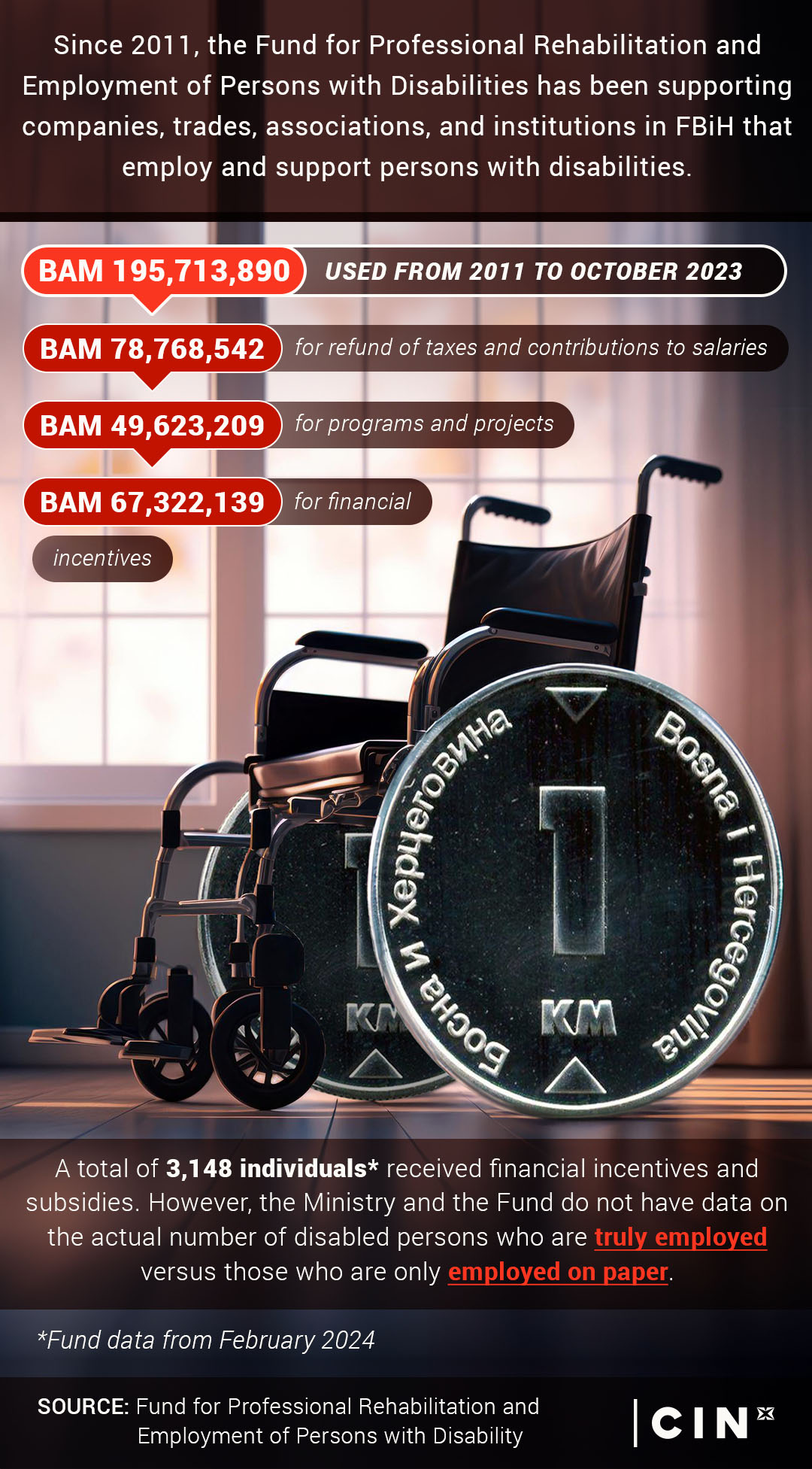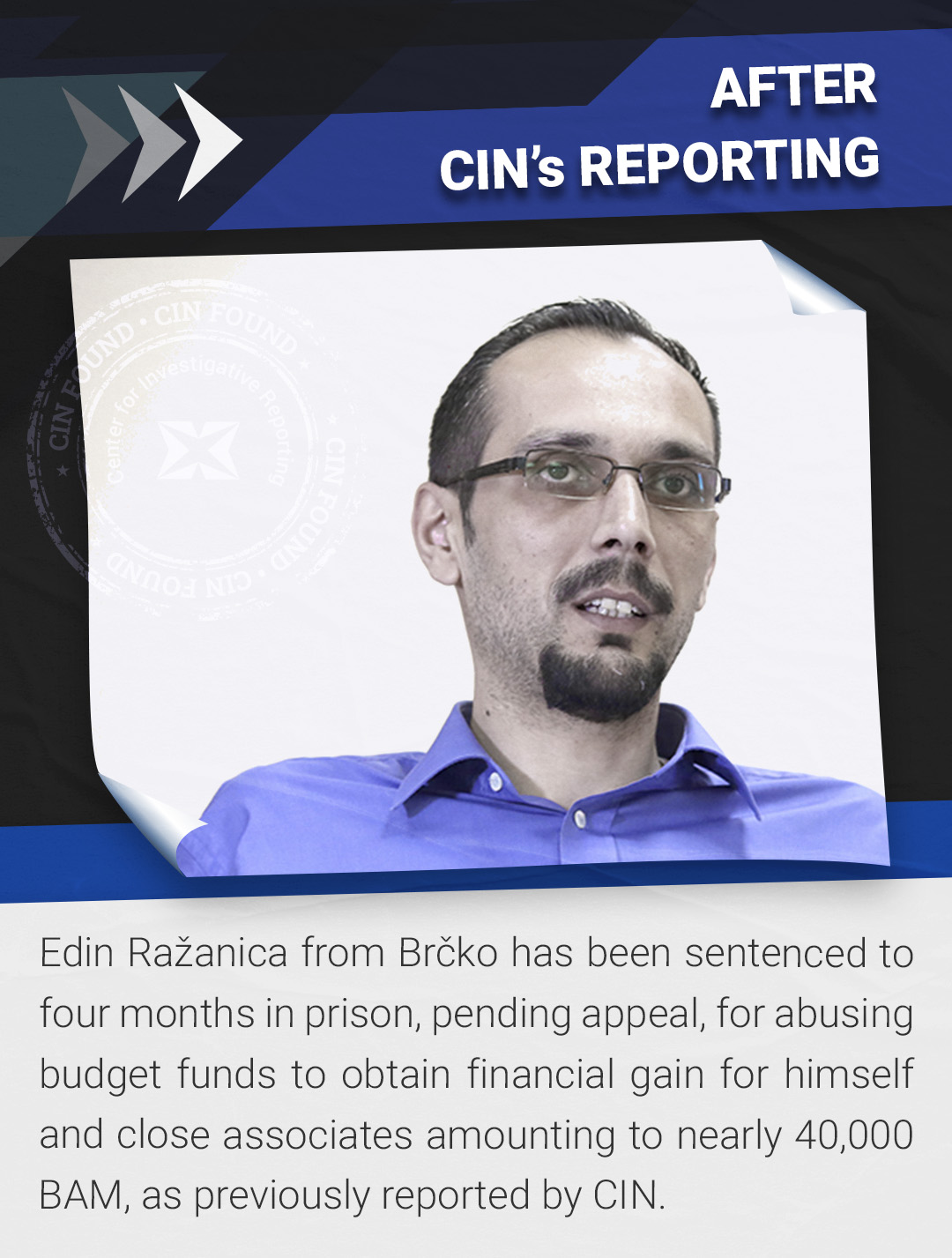Over the past 13 years, the Fund for Professional Rehabilitation and Employment of Persons with Disabilities has disbursed over 195 million marks for the employment of individuals with disabilities in the Federation of Bosnia and Herzegovina (FBiH). A portion of the funds appears to have been wasted as these individuals were only employed on paper — they received salaries and benefits without actually performing any work.
Journalists from the Center for Investigative Reporting (CIN) have discovered that certain companies were formally employing individuals with disabilities solely to exploit financial incentives and tax refunds.
Zilhad Forić is linked to three companies that secured over 3.2 million BAM from the Fund in an eight-year span. He confessed that half of the thirty disabled employees in one of his companies had little to no actual work duties. This particular company was used for selling honey.
“They had a work-from-home contract, akin to remote work. Some even took goods on credit (…) they would take a dozen syrups, ten kilos of honey, and sell them to relatives, their own family… Perhaps six or seven of them didn’t do anything”, admits Forić in an interview.
Some employers have been taking a cut from their employee’s salaries. A former employee of the tailoring company Šabić BH testified to a CIN journalist that she was only formally employed and had to return a portion of her salary.
The Supreme Audit Office in FBiH established that the Fund does not sufficiently monitor the companies to which it allocates funds. In 2020, audits were conducted on 37 beneficiaries who had received these funds in the previous two years, specifically in Sarajevo Canton and Herzegovina-Neretva Canton.
“It was established that (…)all disabled individuals were absent during the audit (…) due to reasons like annual vacation, sick leave, taking days off, working from home, and so on”, explained Marijana Milićević, the coordinator of the Financial Audit Section.
Employment on paper
The BiH Federation Parliament enacted the Law on Professional Rehabilitation, Training, and Employment of Persons with Disabilities in 2010, establishing the Fund. It is funded by businesses and institutions that do not hire individuals with disabilities.
Samir Krivić, an activist for the rights of the disabled and a former Fund employee, argues that the Law has become meaningless. Over the past decade, it has become apparent that these individuals are only employed on paper, meaning they do not actually work. Employers hire them solely to gain financial benefits.
“A person with a disability is basically offered a straightforward deal by employers – I’ll hire you, you’ll have your years of service recorded, health insurance, and you don’t even have to show up for work – explains Krivić.
The most significant perks are obtained by companies that qualify as protective workshops. This status is granted once a company employs a minimum of nine persons with disabilities. This status allows them to access funds from the Fund for tax and contribution refunds for all employees, as well as a subsidy equal to 30% of the average net salary in FBiH for each employee with a disability. Additionally, companies with this status are eligible for extra financial incentives, giving them a competitive edge over others.
The companies Zlatni med, Gunsu BH, and Zikros, all managed by Forić, also held the status of a protective workshop. All three are registered at the same address in Sarajevo.
Zlatni med and Gunsu BH received 3.18 million BAM from the Fund between 2016 and 2022. These two companies ceased operations after the Fund suspended payments to them in early 2023 because Forić did not permit audits. When Fund auditors arrived, they found no employees with disabilities present, consequently, as they stated, they were unable to determine whether these individuals were actually engaged in any work processes.
“If you have about twenty employees and one refund is denied, that’s the end of it; you can no longer function”, explained Forić.
According to Ahmet Baljić, the director of the Fund, they attempted to audit Zlatni med after irregularities were reported in the procurement of fixed assets and raw materials. However, Forić declined the audit, arguing that they already had certificates from the Fund confirming that the expenditure was valid.
As a result, the Fund suspended their payments, leading to the dismissal of all employees, including approximately twenty individuals with disabilities.
Armina Mešić Feriz from Ilijaš, who has undergone two kidney transplants and has been on dialysis for over 15 years, was also dismissed. She was formally employed at Zlatni med until March 2023. While undergoing treatment in Sarajevo, she discovered that she was without health insurance. Upon contacting the company, she was informed that they would employ her at the company Zikros under the same conditions, as Zlatni med had already ceased operations at that time.
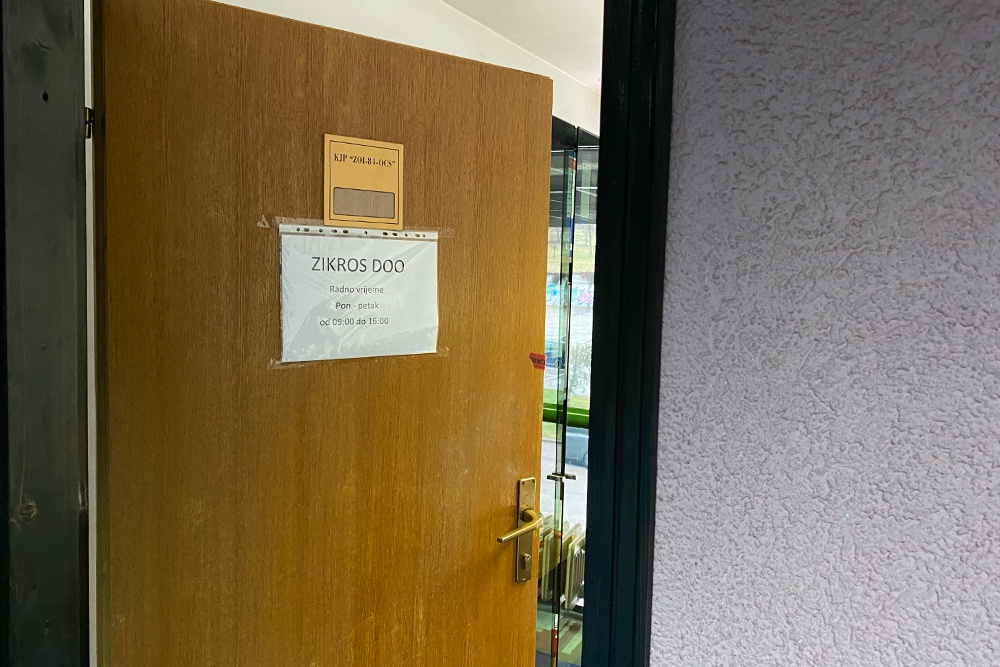
Zikros, a dairy cow breeding company, was officially registered in 2023. Between July and October of the same year, it received nearly 50,000 BAM in tax and contribution refunds, as well as subsidies for net salaries on the account of individuals with disabilities.
“I agreed to take the job because I lost my health insurance”, Mešić Feriz stated in a written submission to the Fund in early July 2023. Her reason for approaching the Fund was unpaid wages for April, May, and June. After filing a complaint, Zikros paid her backdated salaries.
When asked about Mešić Feriz’s role, Forić replied: “Yes, she worked at Zlatni med. She then started working at Zikros. She didn’t do anything, absolutely nothing. She was formally employed, received a salary, and worked from home.”
The regulations concerning work and professional rehabilitation allow for employees to work from home. Forić acknowledged that among his employees, some genuinely worked, while some had no real obligations.
However, during an inspection control by the Fund at Zikros in early 2024, the auditors found only one out of the 13 employed persons with disabilities present. Forić was present in the office during the control and introduced himself to the auditors as a guest. However, in a conversation with journalists, he admitted that he was also behind that company.
“Not every person with a disability is able to work… And then you tell such a person – stay at home – because you feel sorry for them – and you’ll still receive a salary”, said Forić.
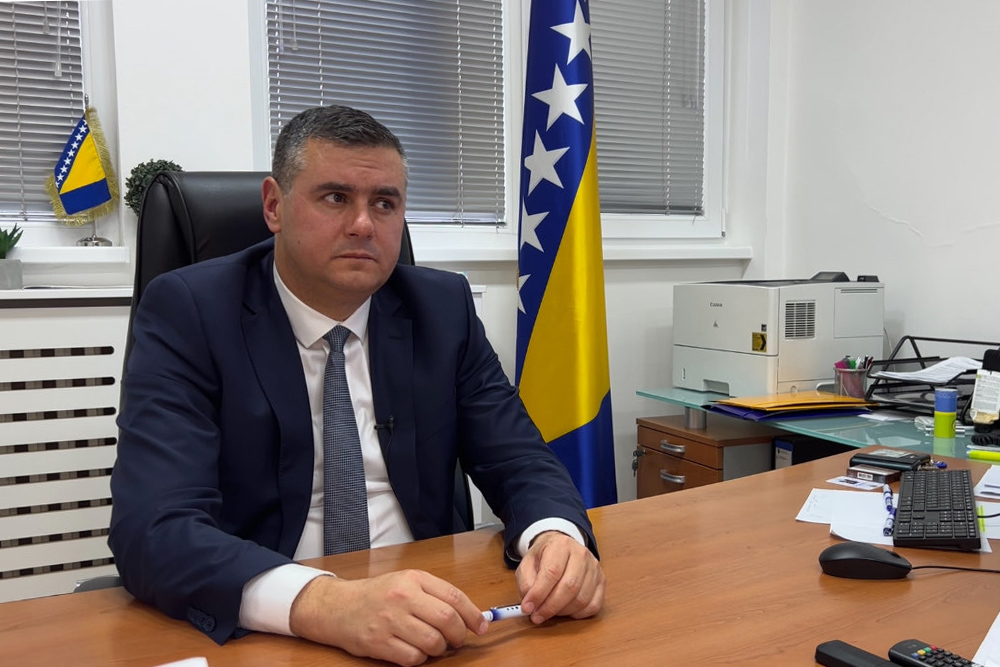
The Fund’s Director Baljić stated that he has filed complaint against Zlatni Med and Guns BH with the Cantonal Prosecutor’s Office in Sarajevo due to their refusal to allow their officials to conduct inspection control.
The Prosecutor’s Office informed journalists that they are currently checking the allegations against Zlatni med from the report. However, regarding Gunsu BH, the investigation will not proceed as what was reported does not constitute a criminal offense. Nevertheless, the Fund has appealed and is currently awaiting the decision of the chief cantonal prosecutor.
According to Adnan Delić, the Federation Minister of Labor and Social Policy, the Fund bears the responsibility for monitoring the beneficiaries of the funds.
“We have drafted amendments to the Law on Professional Rehabilitation and Employment of Persons with Disabilities, where we aim, among other things, to strengthen supervision over the Fund’s responsibilities, Delić stated.
Baljić, however, mentioned that due to the insufficient number of Fund employees, it is impossible to supervise the 3,500 persons with disabilities who are exercising their rights to contribution reimbursement.
“In 2023, we conducted no less than 150 regular audits”, Baljić stated, adding that they responded to all reports received.
In the 2020 audit, Federation auditors noted that the Fund could not confirm during its supervision of the fund beneficiaries whether employed persons with disabilities were performing the tasks for which they were trained.
“You absolutely couldn’t and cannot determine whether they are performing the tasks for which they are trained, and if their workplaces and working conditions are adapted to their working abilities”, said Marijana Milićević from the Supreme Audit Office.
The cut for the oppressed social class
The company Šabić BH also received funding from the Fund. The company was established in 2018 by Samira Šabić – who previously owned a tailoring business – and began hiring individuals with disabilities.
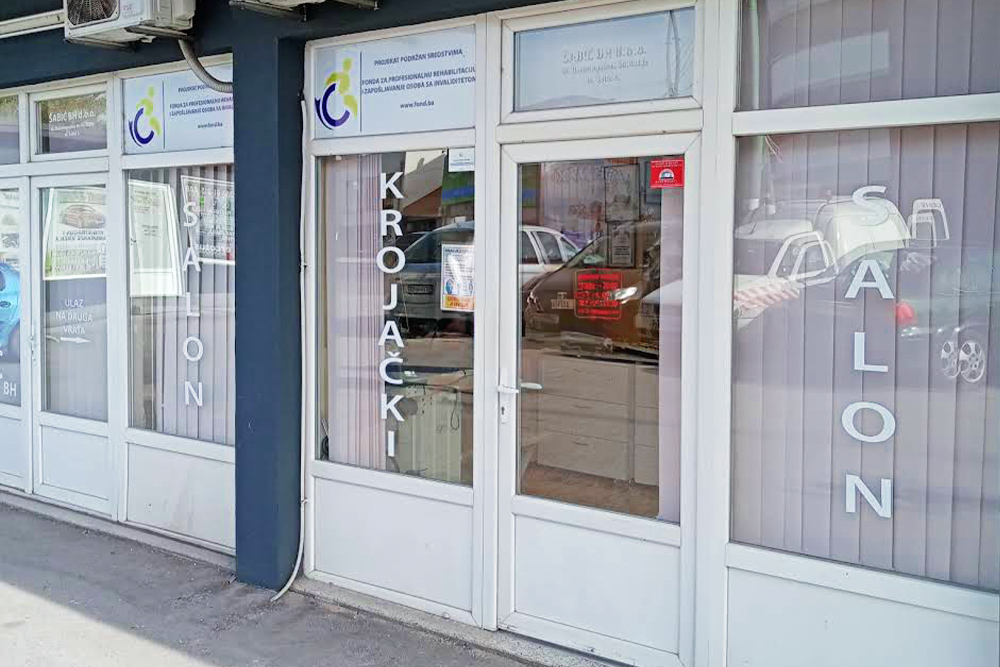
By the following year, the company had five employees with disabilities, for which they received 67,200 BAM. One of them was seamstress Halida Jahić, who worked on commission for almost three years.
She recalls the conversation with the boss, Šabić, at the time: “She asked us if we knew any disabled people we could hire. I told her – Come on, just register me, I’m disabled, I’m already working for you.”
It didn’t take long for that to happen. Jahić was employed from May to September 2019, but by the end of this period, she still hadn’t received her salary for July. Frustrated, she decided to quit. “You can’t take what’s rightfully mine”, she said.
Attempting to uncover the whereabouts of the July salary, CIN journalists discovered that the company provided a statement to the Fund, along with an account number, claiming that the payment was made to Halida Jahić. However, upon comparing this information with Halida Jahić’s actual bank account number, the journalists discovered that the July salary was deposited into the account of the company owner, Samira Šabić, at Addiko Bank.
Šabić BH received 11,550 BAM from the Fund for employing Halida Jahić. When she resigned, the company was required to return the remaining funds to the Fund.
Ahmet Baljić, director of the Fund, couldn’t confirm to journalists if there are more cases like this. “In these companies, there are directors who are responsible for legality.”
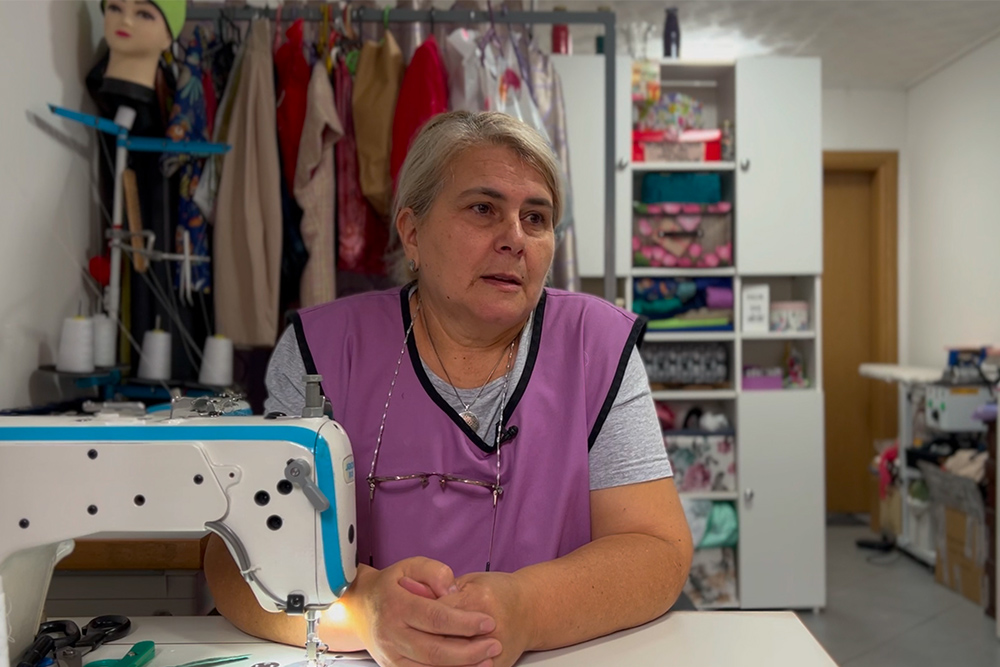
A year later, Amra Golubić landed a job at Šabić BH through her association membership with Ruke podrške [Supporting Hand] from Hadžići. The association’s President, Almir Išerić, recommended that she take up a cleaning position in this company, but she informed him that she couldn’t do physical work due to her condition.
Golubić recalls Išerić telling her that she wouldn’t even be working; instead, assistants would work in her place, which is why she was asked to return 175 BAM from her salary.
“These assistants need to be paid. I mean, it’s only fair. No one can work for you for free”, Golubić recalls.
Journalists discovered that her assistant was the then-director of Šabić BH and the husband of the company’s owner, Elvedin Šabić. He had signed a contract with himself for a salary of 175 BAM as an executor and contractor, agreeing to assist with cleaning duties.
Even though she was employed full-time and received a salary ranging from 400 to 620 BAM, Golubić did not go to work. According to her, she was returning the requested amount from her salary every month.
Išerić confirmed that he facilitated the hiring process but clarified that he did not make any agreements with Golubić. “I am not an employee of Šabić BH”, he said.
Golubić recalls that she first met the employers when they asked her to come to the company because they had received information that an inspection from the Fund would visit them.
“After a year and a half (of returning the money, author’s note) I went to Ilidža for the first time, to that company” she recalls, mentioning that she spent only two days at her workplace during the entire period of employment.
Senad Golubić, her husband, confirmed this to journalists, stating that he was bring back the money on the same day as her salary. “Sometimes it might be later, but mostly on the same day”, said he.
For her employment, Šabić BH initially received 12,600 BAM from the Fund.
Doubting the legality of the agreement, Golubić sought advice from lawyers who advised her to request a statement or receipt for returning the money, and so she did by the end of 2022. The following month, Golubić requested the bank account number to which she could transfer the money, after which Šabić sent her the giro account of another employee via Viber messaging.
“It’s the number of the woman who works instead of you, and as far as I’m concerned, you can put whatever you want as the purpose of the payment”, wrote Šabić.
After she protested, Golubić received a written warning instructing her to come to work. She took sick leave, but as soon as it ended, she was fired. She explains that other disabled individuals were also returning a cut of their salary to their employers. This was also confirmed by Halida Jahić, who mentioned that people with disabilities “always had some cut that they had to return (referring to Samira Šabić).”
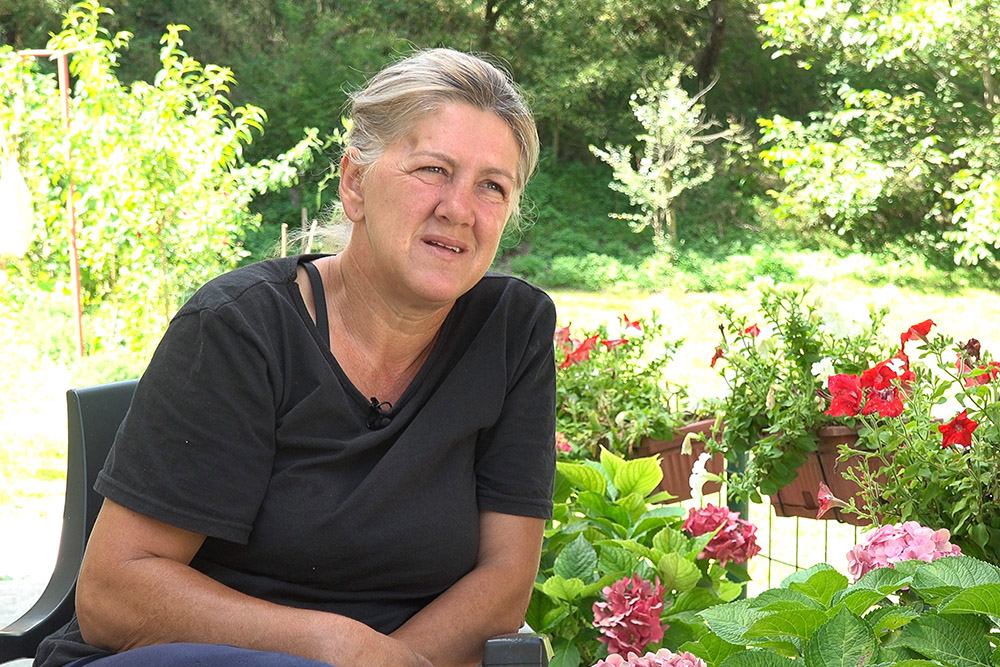
The work contract that the assistant and director Šabić signed with himself had already expired at that time. In the meantime, his wife took over as the director of the company and then employed her husband as a disabled person. For this employment, they received 16,200 BAM from the Fund.
From 2019 to the end of 2023, Šabić BH received more than 1.4 million BAM in the form of financial incentives, tax refunds, and contributions for company development.
The Šabić couple declined to appear in front of the CIN camera. They insisted on written correspondence but ignored specific questions regarding the employment conditions for persons with disabilities.
“We bear the burden of the disease, to be specific, I do, while someone makes profits“, said Golubić.
